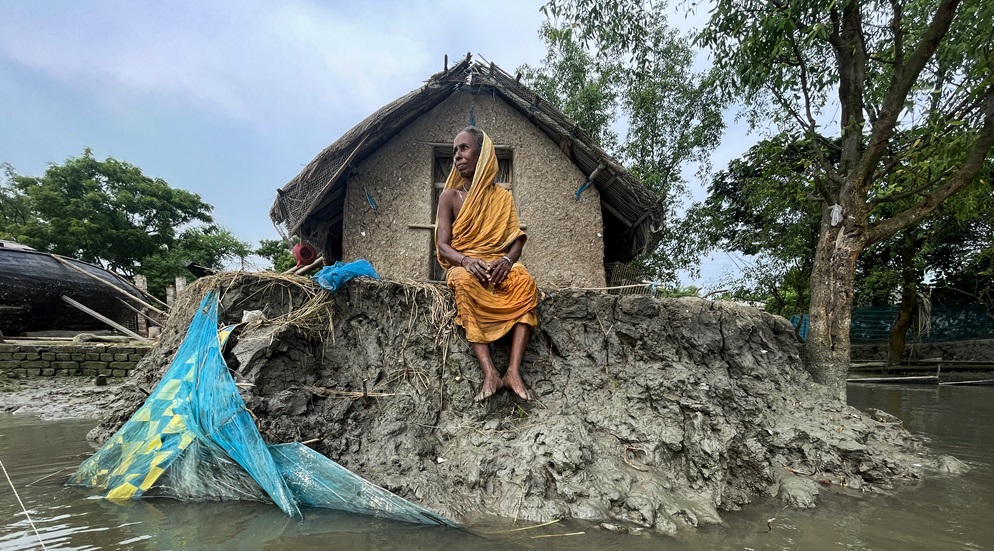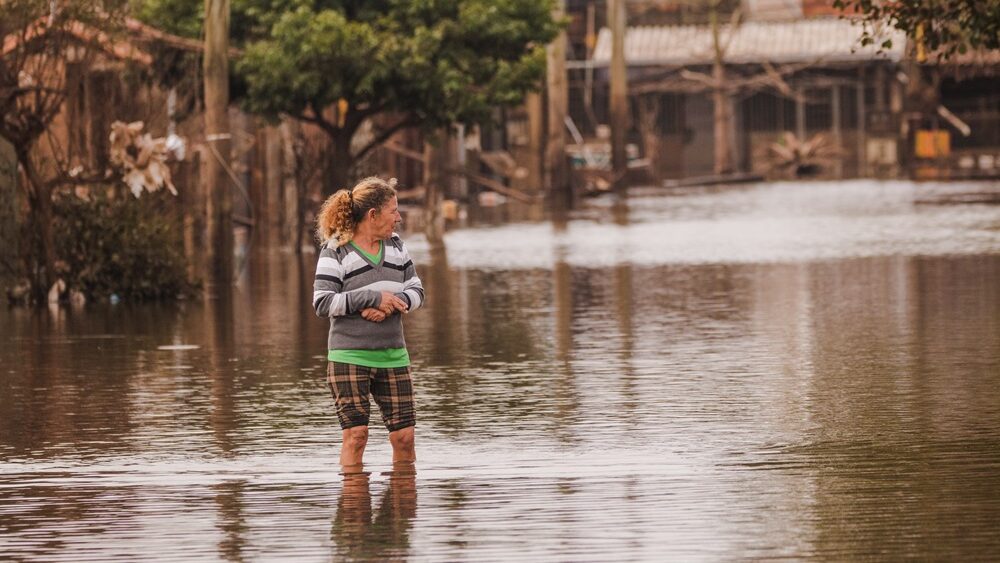PDD Key Messages: Climate Change and Displacement in the Climate Change Negotiations under the UNFCCC
Background
Large-scale movements of people, with climate change as one of the drivers, affect regions across the world particularly countries and communities most vulnerable to climate change including Small Island Developing States and Least Developed Countries. In 2017, it is estimated that 18.8 million people were newly displaced as a result of disasters linked to natural hazards, a majority (95 %) of which were weather and climate related. This number does not include those compelled to move in the context of slow-onset events and processes linked to the adverse effects of climate change and environmental degradation.
Looking towards the future, the World Bank projects that in three regions (Sub-Saharan Africa, South Asia and Latin America) alone, without additional and concrete climate and development action by 2050, more than 143 million people could be forced to move within their own countries to escape the slow-onset impacts of climate change.
The challenges of human mobility, including forced displacement, related to climate change have been discussed in the context of climate change negotiations under the UNFCCC for more than a decade. A landmark decision was the inclusion of human mobility in the Cancun Climate Change Adaptation Framework at the 16th session of the Conference of the Parties (COP16)[1], in Mexico in 2010. Another one was the decision in 2015 at COP21[2] in Paris, France to establish a Task Force on Displacement to develop recommendations for integrated approaches to avert, minimize and address displacement related to the adverse impacts of climate change.
The Task Force has now delivered on this its mandate, and the recommendations on integrated approaches have been forwarded by the Warsaw International Mechanism for Loss and Damage (WIM) Executive Committee (Excom) for consideration by Parties at the 24th session in Katowice, Poland, 3–14 December 2018[3].
PDD Key Messages for the Twenty-fourth session of the UNFCCC Conference of the Parties (COP 24)
The recommendations are the result of the joint efforts undertaken by the Task Force on Displacement involving a broad range of stakeholders. Their implementation will help Parties, stakeholders and affected communities to better understand displacement, address displacement risks and be better prepared to respond to displacement challenges. They reference a range of actions and policy instruments that aim to strengthen policies, institutional frameworks, tools and guidelines on climate change and other type of action, as well as the preparedness and other capacities of national and local governments. The recommendations also recognize the importance of action and support to enhance knowledge, data collection and monitoring of risks, including coordination and policy coherence.
The recommendations are very comprehensive and contain suggestions on integrated approaches on what actually can or should be done to avert, minimize and address displacement related to the adverse effects of climate change and disasters, and they identify a range of relevant stakeholders, under, as well as outside of the UNFCCC, that can support their implementation.
By supporting the recommendations with a view to taking these strides forward, Parties will draw upon and build on earlier decisions and strides made in the context of implementing the Cancun Climate Change Adaptation Framework and the work of the Warsaw International Mechanism for Loss and Damage under the UNFCCC.
| Key messages
Parties should consider the recommendations at this 24th session because they will complement and in crucial ways contribute to ongoing international efforts and processes, such as the United Nations’ 2030 Agenda for Sustainable Development, the Sendai Framework for Disaster Risk Reduction 2015-2013 and The New York Declaration for Refugees and Migrants and the two 2018 Global Compacts, for Migration and on Refugees. Parties should welcome, adopt and commit to support implementation of the recommendations by the WIM Executive Committee and the work of the Task Force on Displacement, because they:
The outcomes of these considerations by Parties at COP24 will be critical and shape the international community’s forging of a comprehensive approach to preempt, plan for and address displacement related to the adverse effects of climate change today and in the future. |
[1] Reference: FCCC/1/CP.16 https://unfccc.int/resource/docs/2010/cop16/eng/07a01.pdf
[2] Reference: FCCC/1/CP.21 https://unfccc.int/resource/docs/2015/cop21/eng/l09.pdf
[3] Reference: FCC/SB/2018/1 https://unfccc.int/sites/default/files/resource/1e.pdf
Learn more about the United Nations Framework Convention on Climate Change 24th Conference of the Parties (COP24)
Download the Warsaw International Mechanism for Loss and Damage Executive Committee’s annual report.
The recommendations to avert, minimize and address displacement related to the adverse effects of climate change can be found in Chapter IV para. 51 (l) – (w).





